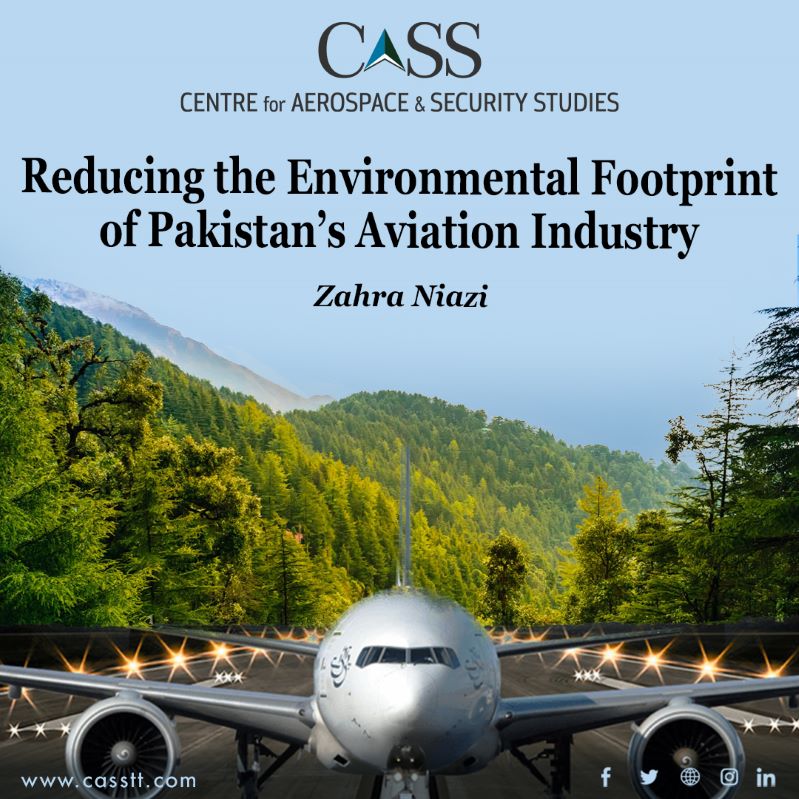As the global aviation industry emerged from the effects of the COVID-19 Pandemic, its impact on the environment has been an area of increasing focus. The European Commission predicted that in the absence of drastic measures, demand for air travel could lead to a 300% increase in greenhouse gas emissions over the 2005 levels by the middle of the 21st Century.
Resultantly, there have been invigorated global efforts to reduce the environmental footprint of the aviation industry. In October 2022, the United Nations International Civil Aviation Organization (ICAO) agreed to the ‘aspirational’ goal of ‘net zero aviation emissions’ by 2050, with 193 member countries on board. This is to be achieved through measures such as adopting new green aerospace technologies, using Sustainable Aviation Fuels (SAFs), optimising flight routes, and digitalising airlines’ fuelling operations.
However, translating this vision into reality would take a lot of work. There exists widespread consensus that the long lifespan of aeroplanes and the cost of solutions make aviation one of the hardest-to-abate sectors. For example, while fuel accounts for 20% to 30% of an airlines’ operational costs, the International Air Transport Association (IATA) estimates that SAFs cost two to four times more than any other aviation fuel. Hence, production is limited and accounts for only 0.1% of global jet fuel consumption. Similarly, replacing the existing fleets with more environmentally friendly units is not easy, as new jets cost hundreds of millions of dollars. Other barriers to decarbonising aviation include, for instance, a lack of regulatory support or the reluctance of passengers to accept the cost of low-emission solutions.
Although developing countries account for a lower proportion of aviation emissions than their developed counterparts, reducing them still remains a huge challenge due to resource constraints, and Pakistan is no exception. Despite this, there is a strong need for Pakistan, like other developing countries, to expedite efforts toward reducing aviation emissions to ensure efficiency gains and long-term competitiveness in aviation and fulfil the country’s environmental commitments. Research has shown that an increase in air passengers carried will have a significant and positive effect on the environment in the long run in Pakistan, indicating the necessity to reduce aviation-related emissions.
The Pakistan Civil Aviation Authority (PCAA) envisions to be an environmentally-responsible organisation and all major airports in the country have become ISO 14001 (international standard specifying the requirements for an effective environmental management system) certified. The country’s National Climate Change Policy (NCCP) also identifies reducing aviation emissions as one of the key measures to achieve national climate mitigation targets. It recommends that the national airline plan fleet up-gradation, consider fuel-efficient aircraft, and support ICAO’s initiative to reduce aviation emissions through improved Air Traffic Management (ATM), involving free-flight air routes rather than defined routes and improved weather services. These would help to reduce not only flight time but also fuel consumption.
Over the years, Pakistan International Airlines (PIA) has added fuel-efficient ATR-72 and A320 aircraft to its fleet. ATR-72 is considered the most fuel-efficient aircraft for regional markets due to its optimised speed, lighter structure, and engine designed for short routes. In 2021, Air Blue also inducted the fuel-efficient A321neo aircraft, which consumes 20% less fuel.
To accelerate this, a national action plan must be formulated that outlines short- and medium-term targets for the long-term decarbonisation of Pakistan’s aviation industry and the key measures needed to get there. In addition, the action plan must clearly state the constraints, such as policy and regulatory barriers in developing and adopting green aerospace technology or low levels of Research and Development (R&D) at the national level, and the key steps needed to remove them over time. The government must conduct consultations with key stakeholders in the public and private sectors to carve out a cohesive and practical pathway to deliver on the challenging yet achievable goal of reducing the environmental footprint of Pakistan’s aviation industry, with the vision of bringing it to net zero.
Zahra Niazi is a Research Assistant at the Centre for Aerospace & Security Studies (CASS), Islamabad, Pakistan. The Article was first published in Pakistan Today. She can be reached at [email protected].





